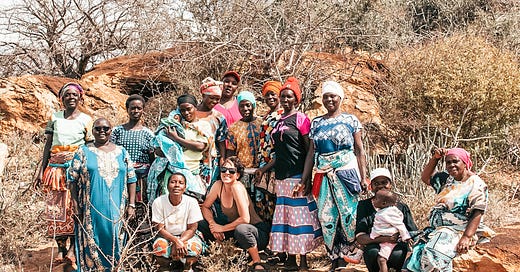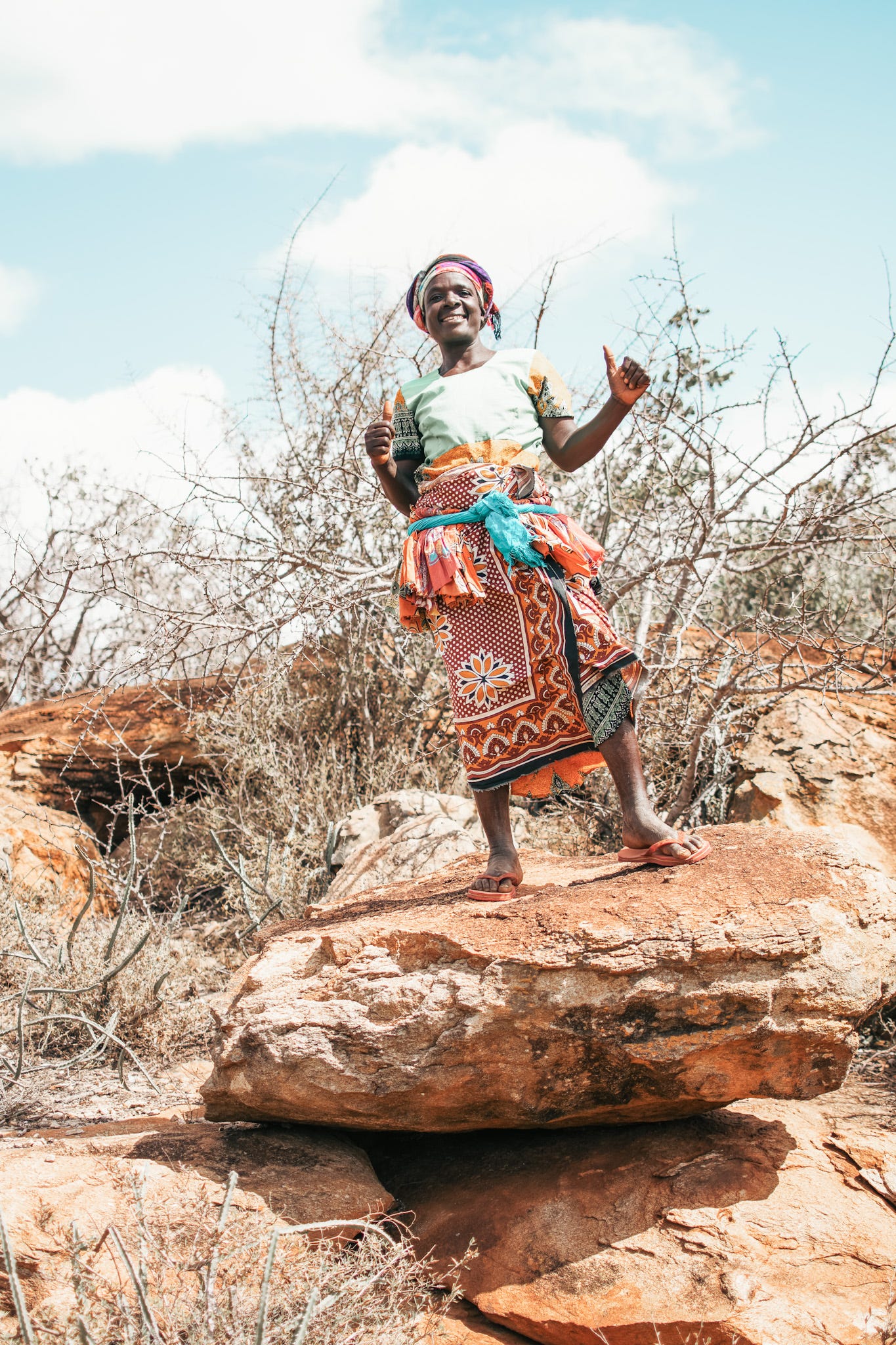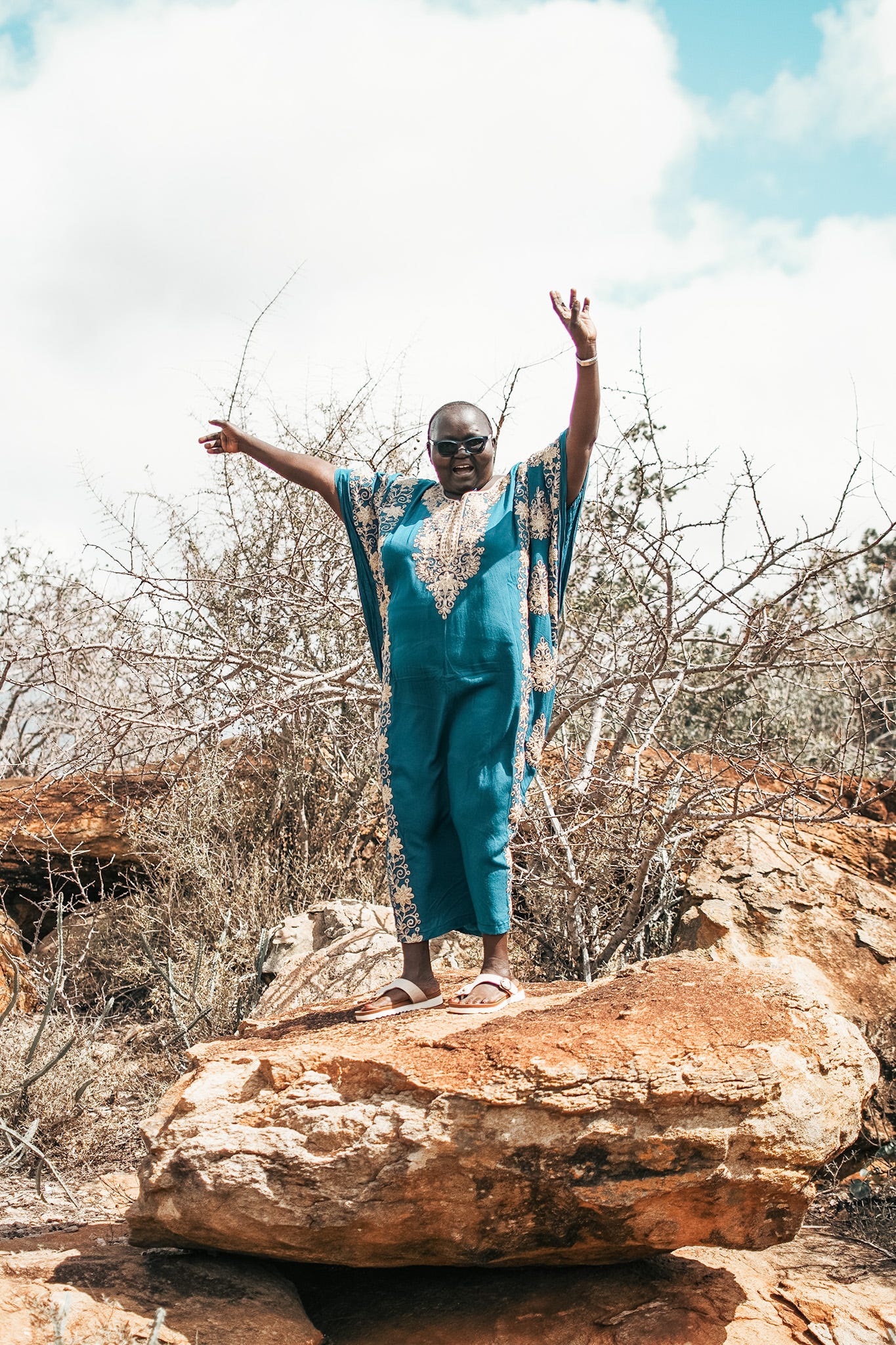I used to not share much about Zawadisha, the non-profit I started in Kenya more than a decade ago. It was foolish to be so afraid to talk about it openly, but I was afraid and confused.
I wanted to stay far away from the archetype of the white woman savior who seemingly dominates the narrative about Africa, a singular place with a simple narrative rather than 54 unique countries that are deep and complex. I also have struggled with holding the disparate lives I lead between Kenya and the US together in my heart and mind. But now I realize that it doesn’t need to be so complicated.
I’m so proud of our work, our team, our partners and it’s time that I start screaming that from the rooftops.
The backstory on Zawadisha
You can think of Zawadisha as the Rent-A-Center of rural Kenya. We work almost exclusively with women who take loans for household items like solar lamps, rainwater tanks, and iron sheets. They pay for the items over time, which is the only way that they could ever afford such simple things that dramatically improve their quality of life. Our all-Kenyan, all-woman team travels on the backs of pikis (what Kenyans call motorbikes in the southern part of the country), down winding singletrack, into villages to literally meet these women where they’re at.
Then our team of Peer Educators follows up with workshops on topics that help them learn how to turn some of these items into income-generating activities, like growing vegetables in small kitchen gardens with the rainwater they have harvested or receiving a few shillings from their neighbors every time they need their cell phone charged on their solar lamp.
This is Cheezi. She makes some of the most creative, wild baskets. I buy all of them and everyone is stunned that I can tell her weaving apart from everyone else’s.
We’ve served thousands of women over the years, and because we are focused on one region, we’ve witnessed the change that our work has created. It’s nothing short of miraculous and more than I ever imagined it could be when I first stepped foot in Kenya in 2004 as part of my graduate research.
When I started Zawadisha, my goal was to work myself out of a job and turn things over to a local team. Their intimate knowledge of their community would ensure that our work actually solved real problems, not the ones that white women make up or pretend to solve. I did that, which is what allowed me to start Coalition Snow. I’ve always been involved at the board level, meeting with Monica, our COO, weekly on WhatsApp and spending at least a month every summer in Kenya.
When you’re forced to figure it out
Zawadisha lost most of its donors when the pandemic started and we couldn't hold our annual in-person fundraising events. In Kenya, we paused all of our operations and sent our team home with full pay. Even once people began leaving their homes, the Kenyan government restricted the size of groups, so it was difficult for us to hold our orientation meetings for new borrowers. People suffered in Kenya in a way that I don’t think we quite understand. People went hungry, and when they did have food it was something that they had killed in the bush. The monkey population on the coast was decimated, to give you an idea of just how difficult things were there.
We had to find another way to generate revenue, and since I had learned these fancy things called marketing and e-commerce through Coalition, I thought why not launch an on-line store? People love the handmade baskets the ladies make and all the jewelry I wear from Cape Town (that connection is a different story for a different day and has to do with a bike ride across Africa), so let’s give this a shot. And then one day as I was shopping at our local farmer’s market here in Reno, and thought that it could be a good place for a Zawadisha pop-up. Turns out it was, and that’s why I now spend most of my weekends selling baskets out of the side of a van in a parking lot.
Meet Monica, our COO, aka THE BOSS. We argue about who is the real boss — me or her — all the time, but there is no way that Zawadisha would be what it is today without her.
When I’m dead talk about Zawadisha in my eulogy please
Zawadisha is the most meaningful thing I’ve ever done in my life. When I think about how it all started with a handful of savings bonds from my grandmother that I invested in a small lending circle with the women in Kenya who helped me conduct my graduate research 20 years ago, I can’t believe how far we’ve come and the impact we’ve made. To see water tanks pepper the landscape and know that because of our work, these families have water and women and their children don’t have to spend hours walking to the wells or water pans every day. To hear the stories about how families can finally breathe in their homes now that toxic paraffin isn’t burning and children can study at night because of solar lamps makes you realize how a simple product can improve the health and well-being of families almost overnight.
I hope today on Giving Tuesday and beyond, when you think about all of the wonderful non-profits that you can support, you consider Zawadisha. A little goes a long way for us, and there’s something very special about knowing how your gift actually changes lives and doesn’t get lost in admin expenses and overhead. Your support could look like a donation, a purchase from our shop, or even a trip to Kenya! And if none of that is in the cards for you today, consider following us on Instagram.
I can’t imagine a life without Zawadisha, and that’s why I’m so proud to share it with you. Thank you in advance for all of your support today and all the other days that so many of you have shown up for 💛







